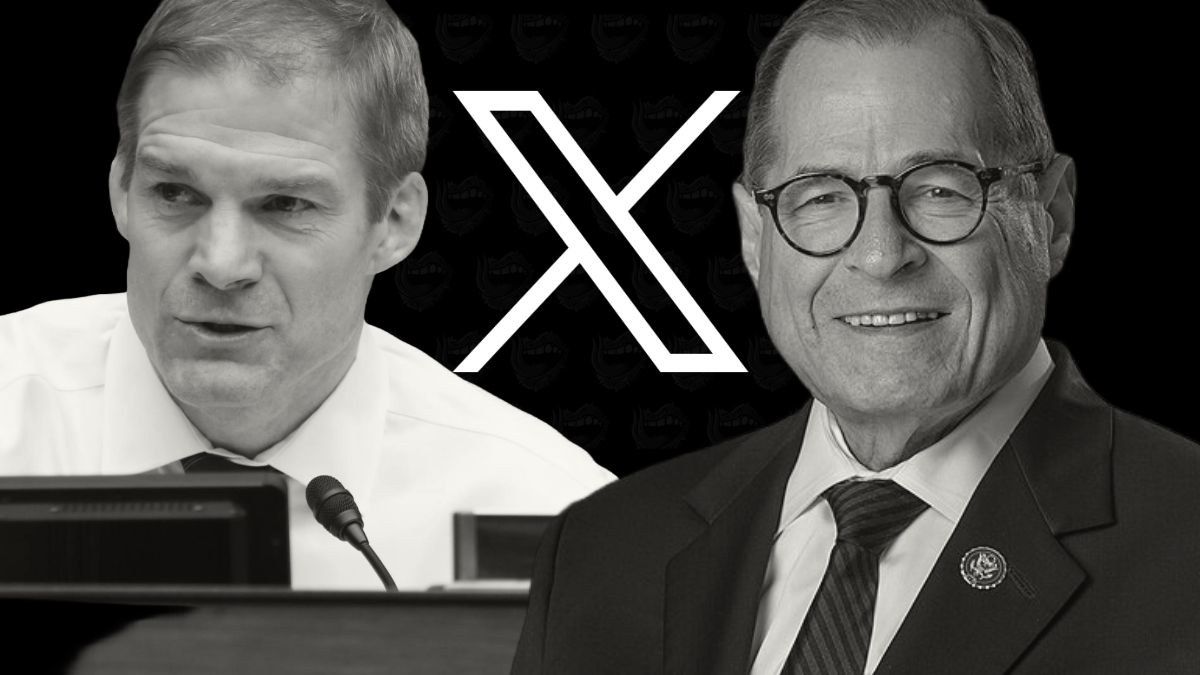X’s Moderation Mishap and the Bipartisan Misrepresentation of Free Speech Online
Berin Szóka / Aug 1, 2024Berin Szóka is President of TechFreedom, a non-profit think tank dedicated to Internet law and civil liberties.

Is Elon Musk tinkering with X (formerly Twitter), the social media platform he owns, to censor Vice President and presumptive 2024 Democratic presidential nominee Kamala Harris? Rep. Jerry Nadler (D-NY) appears to think so. He wants to know why some X users were, at least briefly, unable to follow the @KamalaHQ account, which had been renamed from @BidenHQ when President Joe Biden quit the presidential race.
Musk announced his endorsement of former President Donald Trump two weeks ago. So it’s not unreasonable to suspect him of bias. But the apparent answer to Rep. Nadler’s question is surprisingly boring: all social media impose “rate limits” on behavior that looks spammy—such as massive numbers of users following an account that has just changed names. Because Musk fired most of the humans who used to supplement algorithmic decision making, X is just more likely to make stupid mistakes than other social networks—and worse at explaining what’s happening to users.
But the details aren’t really important. Rep. Nadler, the top Democrat on the House Judiciary Committee, is trying to expose the rank hypocrisy of Rep. Jim Jordan (R-OH), the committee’s Republican chair. Last week, he sent Rep. Jordan a letter requesting that the Committee use its investigative powers—something Jordan has been all too eager to do to harass tech companies, advertisers, and researchers about content moderation that he claims unfairly impacts the right. (Unsurprisingly, enforcing community standards against hate speech, normalization of violence, conspiracy theories over the 2020 election, COVID denialism, and the like will tend to impact the Right more.)
In his letter, Rep. Nadler attempts to turn Rep. Jordan’s rhetoric against him: Platforms are the “modern town square,” as Rep. Jordan has claimed, so their “suppressing free speech and intentionally distorting public debate” means that “ideas and policies were no longer fairly tested and debated on their merits.” It’s become an article of faith central to the MAGA agenda that Trump and his allies have a First Amendment right to say whatever they want online, and that any moderation of their content, even fact-checking, is “censorship.” By the same token, Rep. Nadler insists, “Vice President Harris has a right to communicate with the American people as she runs for the highest office in the country.”
Here, Rep. Nadler makes the same mistake that Rep. Jordan and his colleagues on the Select Subcommittee on the Weaponization of the Federal Government have made all along. Both Rep. Jordan and Rep. Nadler are both talking constitutional nonsense. Rep. Jordan may be beyond embarrassment, but Rep. Nadler, a Fordham-trained lawyer, should know better. The First Amendment is a shield against government meddling in the media, not a sword to wield against the media. The “speech” the Constitution protects isn’t your right to force private companies to carry your speech, but their right to refuse to carry your speech.
In other words, even if Musk had taken action against Harris on ideological grounds, it would be his constitutional right to do so, a position that is supported in a diverse 6-3 majority opinion of the US Supreme Court issued just last month.
Justice Elena Kagan, writing for five other justices in the Supreme Court’s recent NetChoice decision, explains that “the First Amendment offers protection when an entity engaging in expressive activity, including compiling and curating others’ speech, is directed to accommodate messages it would prefer to exclude” because the “editorial function itself is an aspect of speech.” She added: “The principle does not change because the curated compilation has gone from the physical to the virtual world.” The Court clearly laid out why lower courts should strike down laws enacted by Texas and Florida to compel social media services to carry speech they abhor, including speech by political candidates.
Calling social media “the modern town square” doesn’t change this principle either. This concept refers to a handful of cases in which the Court has recognized that, say, company-owned towns or, in some cases, shopping malls or airports, might be “public fora” subject to the First Amendment, as if they were owned by the government. “But the key fact in those cases,” the Court noted in NetChoice, “was that the host of the third-party speech was not itself engaged in expression”—but social media sites actively curate content posted by users, and that curation is, again, “speech” protected by the First Amendment.
Rep. Jordan and his MAGA allies have fixated on a single line from Court’s 2017 decision in Packingham v. North Carolina. Justice Anthony Kennedy did, indeed, call social-media platforms the “modern public square.” But the case wasn’t about whether social media are the equivalent of “state actors” (i.e., the government) because that case involved obvious state action: a North Carolina law restricting the right of convicted sex offenders to use social media. In NetChoice, Justice Samuel Alito, writing for Justices Clarence Thomas and Neil Gorsuch, opened his separate opinion by piously invoking the idea that social media are the “modern public square.” But, as the NetChoice court explained, quoting its 1974 decision upholding newspapers’ right to editorial discretion, social media’s “power to ‘shape’ and even ‘manipulate popular opinion’” doesn’t deprive them of the same discretion.
Like Rep. Jordan, Justice Alito could hardly be more hypocritical: he dissented in Packingham, calling Justice Kennedy’s use of this term “undisciplined dicta”—that is, a rhetorical aside unnecessary to the holding of the case that was likely to confuse courts. Now, he and Rep. Jordan capitalize on that confusion. It’s not hard to see why the MAGA right has weaponized the “modern public square” nonsense: it offers a veneer of constitutional legitimacy for what is, in fact, a war on the First Amendment itself, as understood by Chief Justice John Roberts, and Justices Brett Kavanaugh and Amy Coney Barrett—who all joined Kagan’s opinion.
Rep. Nadler should be countering Jordan’s relentless contortion of the First Amendment, not abetting it to score quick political points. Republicans aren’t going to stop waving the bloody shirt about “censorship”—and nothing the Supreme Court says will deter them from misrepresenting how the First Amendment works. Democrats need to figure out how to respond. They could start with Rep. Ted Lieu’s (D-CA) consistent framing of the issue. Responding to a Trump tweet about Google’s supposed “censorship” of conservatives in 2018, Rep. Lieu told Trump: “You should read the First Amendment. @Google has the right to, for example, prioritize cute cat videos over weird Alex Jones rants.”
To that, Democrats could add this: MAGA Republicans aren’t just mistaken about the law, they’re trying to force social media to host, and promote, the most toxic speech imaginable. Everyone in America has the right to deny the Holocaust, or even to call for another one, but no right at all to compel anyone to spread such venom.
Rep. Nadler’s letter is simply beneath him. He attempts to turn the faulty logic of Rep. Jordan’s assault on an imaginary “censorship industrial complex” against him. But in doing so, he effectively endorses the tenets of the MAGA conception of First Amendment. Democrats should expect better from the person who is supposed to be one of their top lawyers in Congress.
Authors
